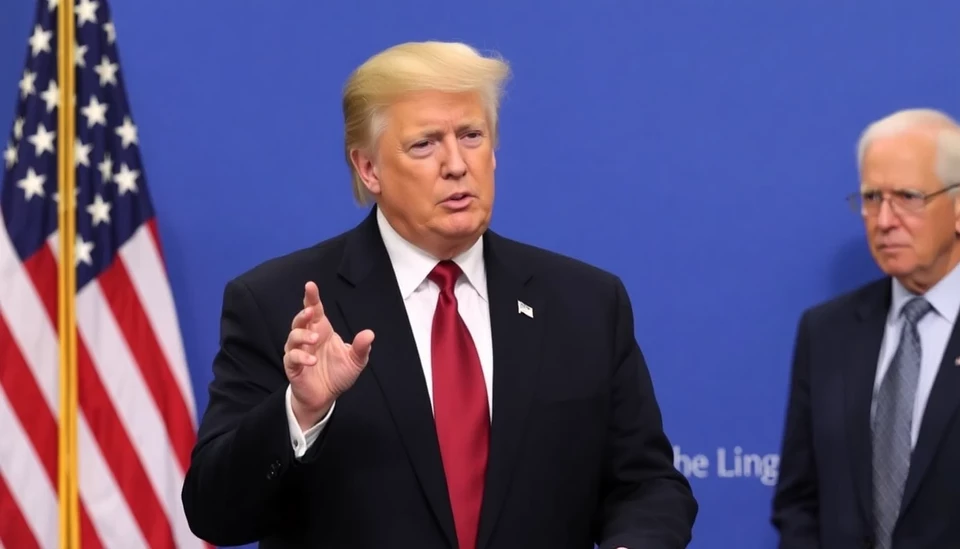
In a strategic move that signals a potential pivot in international trade relations, former President Donald Trump is reportedly preparing to announce the appointment of Andrew Greer as the new U.S. Trade Representative. This decision comes amid ongoing discussions about the United States' trade policies and relationships with key global partners.
Andrew Greer, known for his extensive background in economics and previous advisory roles within the Trump administration, is expected to take the reins at a critical juncture for U.S. trade. His selection reflects not only Trump's preferences but also a greater focus on recalibrating U.S. trade practices to better align with America's interests, particularly against rising global competition.
Greer has garnered attention for his strong stance on renegotiating trade agreements that he and his supporters view as unfavorable to American economic interests. His appointment signals an intention to reformulate the current trade landscape, with an emphasis on fairer terms that prioritize U.S. industries and workers. This aligns with Trump's broader "America First" agenda, which has been a significant talking point since his initial presidential campaign.
As the U.S. navigates complex trade dynamics with countries such as China and the European Union, Greer's experience is seen as pivotal. Alongside his economic acumen, his past experiences may equip him to address the contentious issues surrounding intellectual property, tariffs, and market access—areas that have been focal points in previous trade negotiations.
This anticipated announcement comes as Trump prepares for another bid for the presidency in the 2024 elections, further suggesting that his administration is gearing up for a deeper engagement in trade policy discussions. Greer's anticipated role will likely extend beyond mere representation at international forums, as he is expected to play a key role in shaping the administration’s trade strategies moving forward.
Political analysts are closely watching this development, speculating on how Greer's appointment might affect the Biden administration's trade policies and its approach to global dynamics. Trump's past tenure was marked by aggressive tactics, including the use of tariffs, and a willingness to impose sanctions on nations considered non-compliant. The implications of Greer’s potential ascendancy may therefore resonate not only on the domestic front but also on international market relationships.
As the announcement date approaches, various stakeholders—from farmers and manufacturers to international trading partners—are poised to respond to Greer's impending appointment. The ripple effects of this change could influence U.S. economic strategies well into the future.
In conclusion, the upcoming announcement regarding Andrew Greer as U.S. Trade Representative by Donald Trump marks a significant moment in the evolving landscape of U.S. trade policy. It reflects a commitment to reasserting American interests and may reshape how the country interacts with global markets in the years to come.
#Trump #TradeRepresentative #AndrewGreer #TradePolicy #AmericaFirst #GlobalEconomics
Author: Laura Mitchell




